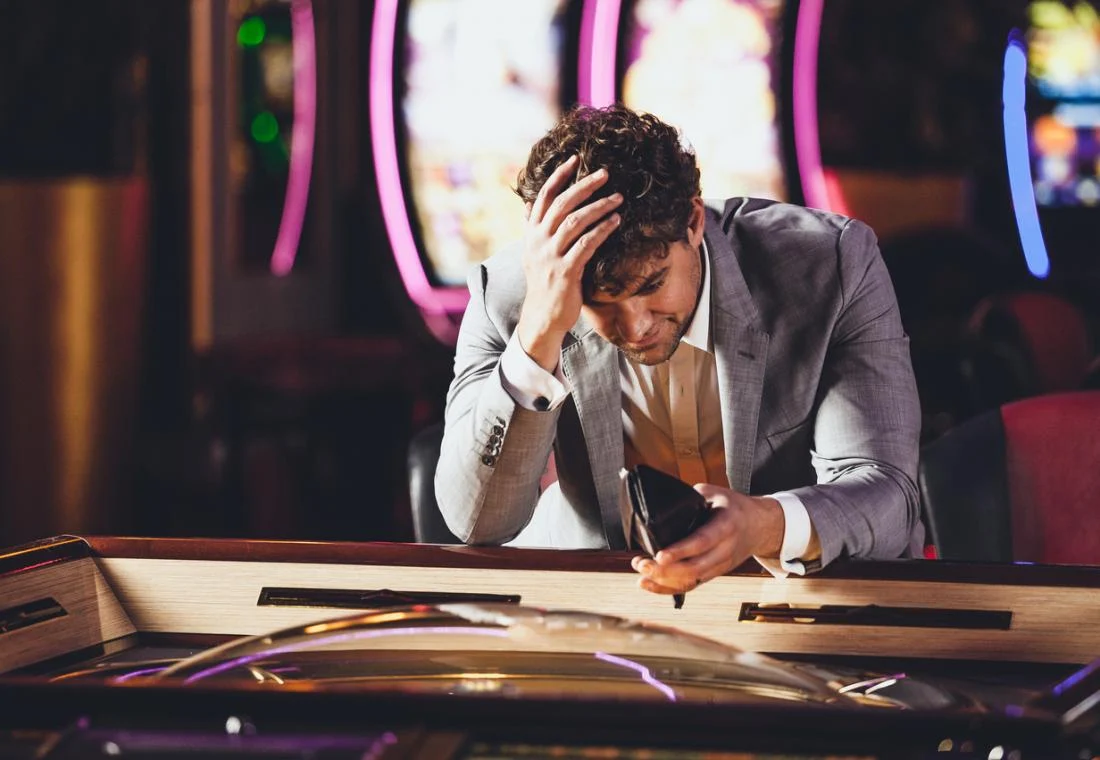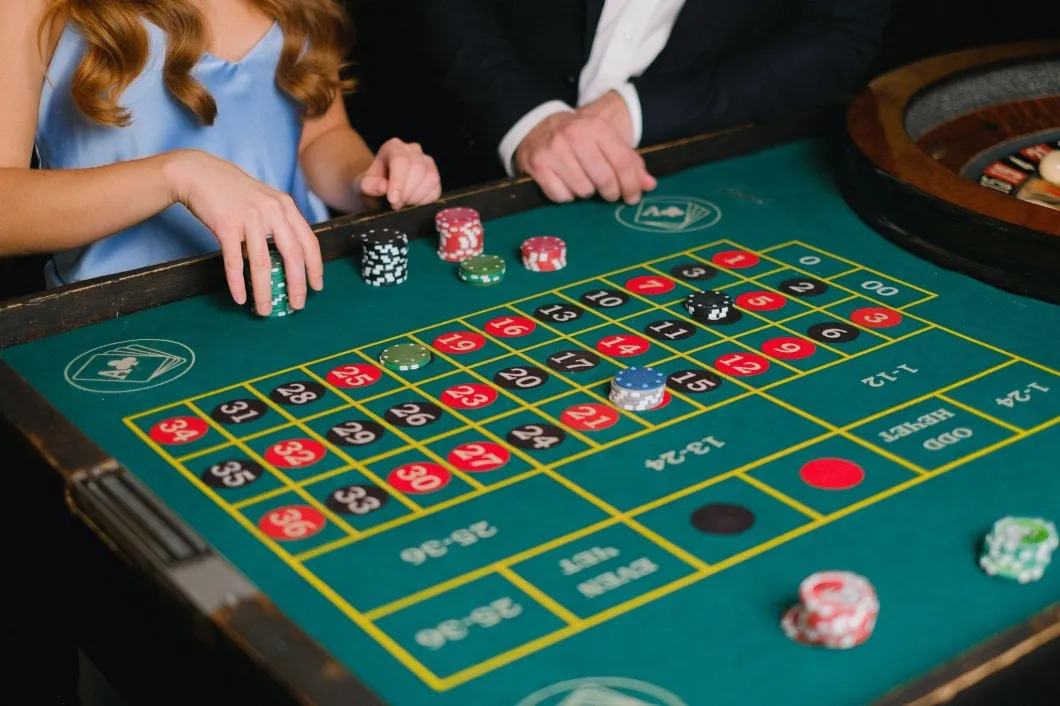
Top 5 Things a Player Feels After a Big Loss
Gene
- 0
Experiencing a significant loss at an online casino like Fightlife can evoke powerful emotions, profoundly impacting a player’s mental and emotional state. Gambling, by nature, involves highs and lows, but a considerable loss triggers particularly intense and complex reactions. Understanding these emotional responses can help players manage their feelings and casinos to support players effectively. This article examines the top five emotions players commonly experience following a substantial gambling loss.
1. Shock and Disbelief
Initially, after a significant loss, players often experience shock and disbelief. The sudden realization of losing a substantial amount of money can feel overwhelming, leaving them momentarily unable to fully grasp or accept what has happened.
Immediate Denial
In the first moments following a big loss, many players enter a state of denial. They might mentally replay the game repeatedly, trying to comprehend how the loss occurred. This denial is a natural psychological defense mechanism, providing temporary protection from emotional pain.
Physical Reactions
Shock often manifests physically—players might feel numb, dizzy, or experience heightened heart rates. These physical responses result from the body’s immediate stress reaction, triggered by the emotional impact of the loss.
2. Anger and Frustration
Once the initial shock fades, players typically move into a phase of intense anger and frustration. These emotions can be directed inward, outward toward the casino, or even the game itself.
Self-Blame and Criticism
Many players direct anger inward, criticizing themselves harshly for perceived mistakes. Thoughts like “Why didn’t I stop sooner?” or “I shouldn’t have taken that risk” become prevalent, leading to deep frustration and regret.
Blaming External Factors
Other players might blame external factors—feeling angry toward the casino, the odds, or the game mechanics. While this anger might temporarily alleviate emotional distress by deflecting responsibility, it often exacerbates negative emotions in the long run.
Impact on Decision-Making
Anger and frustration significantly impair rational decision-making. In this emotional state, players may impulsively chase their losses, making risky bets in an attempt to recover funds quickly, often worsening their financial situation.
3. Anxiety and Fear
After anger subsides, anxiety and fear frequently surface. These feelings often stem from recognizing the financial implications of the loss and the uncertainty about future consequences.
Financial Anxiety
Players commonly experience acute anxiety related to their financial stability after a big loss. Concerns about meeting financial obligations, potential debt, or impacts on family and relationships intensify anxiety, causing significant emotional distress.
Fear of Judgement
Players also fear judgement from others—partners, family, or friends. The stigma associated with gambling losses creates additional emotional stress, as players anticipate criticism or disappointment from those around them.
Psychological Stress
Chronic anxiety can lead to prolonged stress, sleep disturbances, and even physical health issues. The constant worry and uncertainty regarding financial recovery contribute to a vicious cycle, making emotional recovery challenging.
4. Sadness and Depression
Significant losses can trigger deep feelings of sadness and potentially lead to depression. Players frequently feel emotionally drained, hopeless, and overwhelmed by negative emotions following substantial financial setbacks.
Emotional Exhaustion
After cycling through intense emotions, players often experience emotional exhaustion, feeling drained and devoid of energy. The sadness can feel overwhelming, making daily tasks and interactions increasingly difficult.
Loss of Enjoyment
Activities previously enjoyed might lose their appeal after a substantial loss, contributing to feelings of depression. Players may withdraw socially, avoid interactions, and become increasingly isolated due to shame and sadness.
Risk of Clinical Depression
Persistent sadness following a big loss can escalate into clinical depression if unaddressed. Symptoms such as persistent hopelessness, significant changes in appetite or sleep patterns, and withdrawal from social activities require professional attention and support.
5. Acceptance and Reflection
Eventually, many players reach a stage of acceptance and reflection, which is crucial for emotional recovery and growth. While not all players reach this stage easily or quickly, those who do find greater emotional resilience and strength.
Acceptance of the Outcome
Accepting the reality of the loss involves acknowledging the outcome without judgment or excessive self-criticism. Recognizing that losses are inherent to gambling allows players to emotionally distance themselves from the event, reducing its psychological impact.
Reflection and Learning
Players who effectively manage big losses often reflect on their experiences to gain insights. Evaluating their gambling behavior, risk tolerance, and emotional reactions provides valuable lessons for future gambling activities, promoting healthier habits.
Building Resilience
Acceptance fosters emotional resilience, empowering players to handle future losses more effectively. Emotional maturity, developed through reflection and acceptance, equips players with strategies to manage their gambling behaviors responsibly and sustainably.
Coping Strategies: Managing the Emotional Impact
Understanding the emotional impact of big losses highlights the importance of effective coping strategies.
Seeking Support
Talking openly with trusted friends, family members, or professionals provides emotional relief and perspective. Sharing experiences can reduce feelings of isolation and shame, promoting emotional recovery.
Financial Planning
Developing a practical financial recovery plan alleviates anxiety and stress. Setting realistic financial goals and establishing budgets ensure responsible management of future gambling activities and reduce the risk of repeat significant losses.
Professional Help
Players experiencing prolonged emotional distress should seek professional psychological support. Therapists and counselors specializing in gambling issues offer practical strategies, emotional support, and guidance for managing losses healthily and responsibly.
The Role of Online Casinos: Supporting Players Post-Loss
Online casinos play a vital role in supporting players who experience significant losses.
Responsible Gambling Measures
Casinos must proactively promote responsible gambling, providing tools such as betting limits, self-exclusion options, and reality checks. These measures help players control their gambling behaviors, minimizing the risk of substantial losses.
Transparent Communication
Casinos have a responsibility to transparently communicate the risks associated with gambling. Clear warnings, educational resources, and support information must be prominently accessible, helping players understand potential emotional and financial impacts.
Proactive Player Outreach
Casinos can proactively identify players experiencing significant losses through behavioral tracking. Direct outreach with personalized support and resource offers demonstrates genuine care and assists players in emotional recovery.
Conclusion: Understanding and Supporting Emotional Recovery
Experiencing a significant loss at an online casino profoundly impacts a player’s emotional state, triggering intense feelings from shock and anger to anxiety and sadness. Understanding these emotions and adopting effective coping strategies is essential for recovery and long-term emotional resilience.
Both players and online casinos share responsibilities in managing the emotional aftermath of significant losses. Promoting responsible gambling practices, encouraging open communication, and providing proactive support ensures healthier gambling experiences and protects player well-being.
By recognizing, understanding, and effectively addressing the emotional complexities following substantial gambling losses, players can achieve greater emotional strength, stability, and sustainable gambling behaviors.


